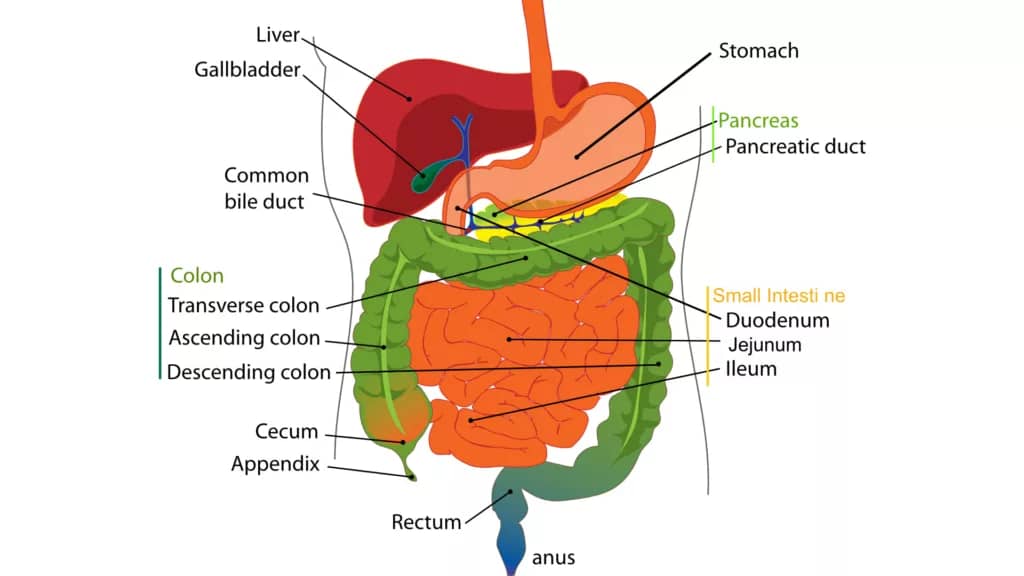Personalized IBS Treatment Plans with Traditional Chinese Medicine
In Traditional Chinese Medicine, Irritable bowel syndrome (IBS) is viewed as a disharmony in the digestive system caused by a combination of internal and external factors mostly complex condition that requires a personalized approach to treatment. TCM considers each person to be unique, with their own set of symptoms, constitution, and underlying causes of IBS. As a result, a licensed TCM practitioner will conduct a thorough assessment of the patient’s health to determine the root causes of their IBS, taking into account their physical, emotional, and environmental factors. Based on this assessment, the practitioner will develop a personalized treatment plan that may include acupuncture, herbal medicine, dietary and lifestyle changes, and stress reduction techniques. It’s important to note that these treatment approaches are tailored to each individual’s needs and may vary based on the severity of the condition and the patient’s response to treatment. That being said, here are some general IBS treatment plans with Traditional Chinese Medicine that a TCM practitioner may use for each cause of IBS:
- Emotional Stress: Acupuncture points that may be used to treat emotional stress and liver Qi stagnation include LV3, GB34, PC6, and HT7. Herbal formulas that may be used include Chai Hu Shu Gan San and Xiao Yao San.
- Poor Diet: Acupuncture points that may be used to treat spleen and stomach Qi deficiency and dampness accumulation include ST36, SP6, Ren12, and Ren6. Herbal formulas that may be used include Bu Zhong Yi Qi Tang and Shen Ling Bai Zhu San.
- Weak Constitution: Acupuncture points that may be used to tonify the spleen and stomach and improve digestion include ST36, SP3, and Ren12. Herbal formulas that may be used include Shen Ling Bai Zhu San and Gui Pi Tang.
- External Pathogenic Factors: Acupuncture points that may be used to dispel dampness and regulate Qi flow include ST25, SP9, and Ren6. Herbal formulas that may be used include Ping Wei San and Huo Xiang Zheng Qi San.
- Medications and Antibiotics: Acupuncture points that may be used to restore the balance of intestinal flora and strengthen the spleen and stomach include ST36, SP6, and Ren12. Herbal formulas that may be used include Bao He Wan and Xiang Sha Liu Jun Zi Tang.
- Hormonal Imbalances: Acupuncture points that may be used to regulate the menstrual cycle and balance hormones include SP6, Ren6, and Ren4. Herbal formulas that may be used include Ba Zhen Tang and Si Wu Tang.
- Lack of Exercise: Acupuncture points that may be used to stimulate Qi flow and strengthen the digestive system include ST36, SP6, and Ren12. Herbal formulas that may be used include Bu Zhong Yi Qi Tang and Si Jun Zi Tang.
- Irregular Eating Habits: Acupuncture points that may be used to regulate digestion and strengthen the spleen and stomach include Ren12, Ren6, and ST25. Herbal formulas that may be used include Bao He Wan.
Frequency of IBS Treatments
The frequency of treatments for IBS in TCM will vary depending on the severity of the condition, the patient’s constitution, and the chosen treatment approach. Generally, in the initial stages of treatment, patients may receive acupuncture treatments once or twice a week for a few weeks. As the symptoms improve, the frequency of treatments may be reduced to once a month or as needed to maintain the improvement.
Expected Outcome of Traditional Chinese Medicine Treatment for IBS
The expected outcomes of IBS treatment plans with Traditional Chinese Medicine for IBS in TCM will depend on the severity and underlying causes of the condition, as well as the patient’s response to treatment. However, in general, acupuncture and herbal medicine can help reduce symptoms such as abdominal pain, bloating, constipation, and diarrhea, and improve digestion and overall gut health. The treatment may also help regulate emotions and reduce stress, which can contribute to the development of IBS.
It’s important to note that TCM treatments for IBS are typically part of a holistic approach that includes dietary and lifestyle changes, stress reduction techniques, and other self-care strategies. While TCM treatments can be effective in reducing IBS symptoms and improving overall gut health, it’s essential not to self-diagnose or use herbal formulas without guidance from a licensed TCM practitioner. Each individual’s IBS condition is unique and requires a personalized treatment plan developed by a TCM practitioner who will assess the individual’s symptoms and constitution to determine the underlying causes of their IBS. With consistent and personalized treatment, many patients with IBS may experience significant improvement in their symptoms and overall well-being. However, the response to treatment can vary, and it’s crucial to work closely with a licensed TCM practitioner to achieve the best possible outcomes.
If you are interested in experiencing the benefits of Traditional Chinese Medicine for yourself, we invite you to come visit us at our clinic. Our experienced practitioners in TCM modalities are here to listen, understand, and tailor treatment plans to meet your individual needs. Contact us today to schedule your appointment and take the first step towards a healthier, more balanced you


